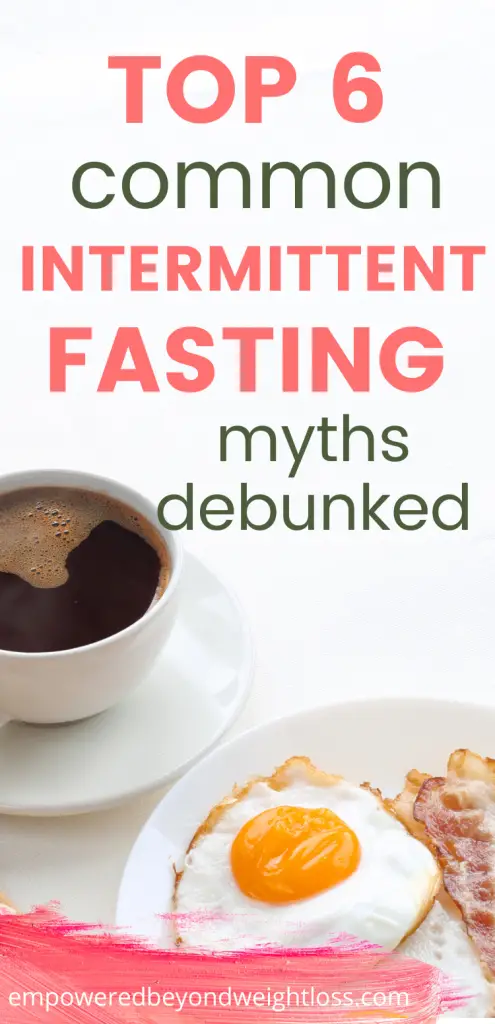Everyone has an opinion about everything, right? I am often amazed at how irrational some people are about intermittent fasting. They come up with all kinds of intermittent fasting myths that have no basis. Suddenly, intermittent fasting becomes the cause of all evil. However, my experience is different. Intermittent fasting enabled me to lose 30 lbs in my forties without feeling deprived sustainably. Of course, I don’t think it’s the magic bullet for everyone! I don’t think we should advise everyone against it, either.
Most Common Intermittent Fasting Myths
Let’s debunk the most common intermittent fasting myths using common sense and scientific research.
1. Intermittent Fasting Requires You to Skip Breakfast
So many health experts say to avoid intermittent fasting and speak as if intermittent fasting means skipping breakfast. Intermittent fasting Is NOT about skipping breakfast. It means confining all your eating within a predetermined window. That’s why it is also called time-restricted eating. Technically, you could eat an early breakfast and a late dinner. Intermittent fasting comes in different forms.
Intermittent Fasting Methods
Here are some of my favorite intermittent fasting methods (but keep in mind that there are many others):
- Warrior Diet (fast for 20 hours 4-5 days a week)
- Eat-Stop-Eat Method (fast for 24 hours 2 days a week)
- 5:2 Method (eat only 500 calories 2 days a week)
- Dawn Til Sunset (eat early in the morning and late at night)
As you can see, even though some of these methods may involve skipping breakfast, many don’t. Also, even when they do, you do not skip breakfast daily.
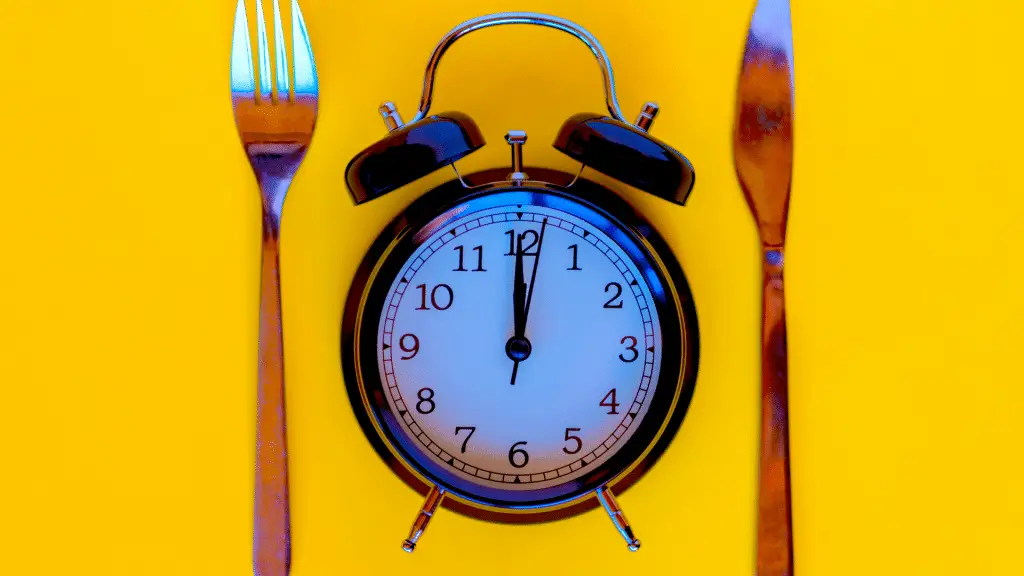
2. Women Should Avoid Intermittent Fasting
I bought into the women should avoid intermittent fasting myth myself. Why? Because the first time I tried intermittent fasting, I hated it and felt awful. Fast forward ten years later, and I was desperate. I was mysteriously gaining weight and felt like I had to feel hungry to avoid gaining weight. Losing weight seemed impossible! That all changed when I started experimenting with intermittent fasting without the preconceived notion that it meant I had to fast for 16 hours every day. I discovered I could become fat-adapted and experiment with intermittent fasting methods better suited for women.
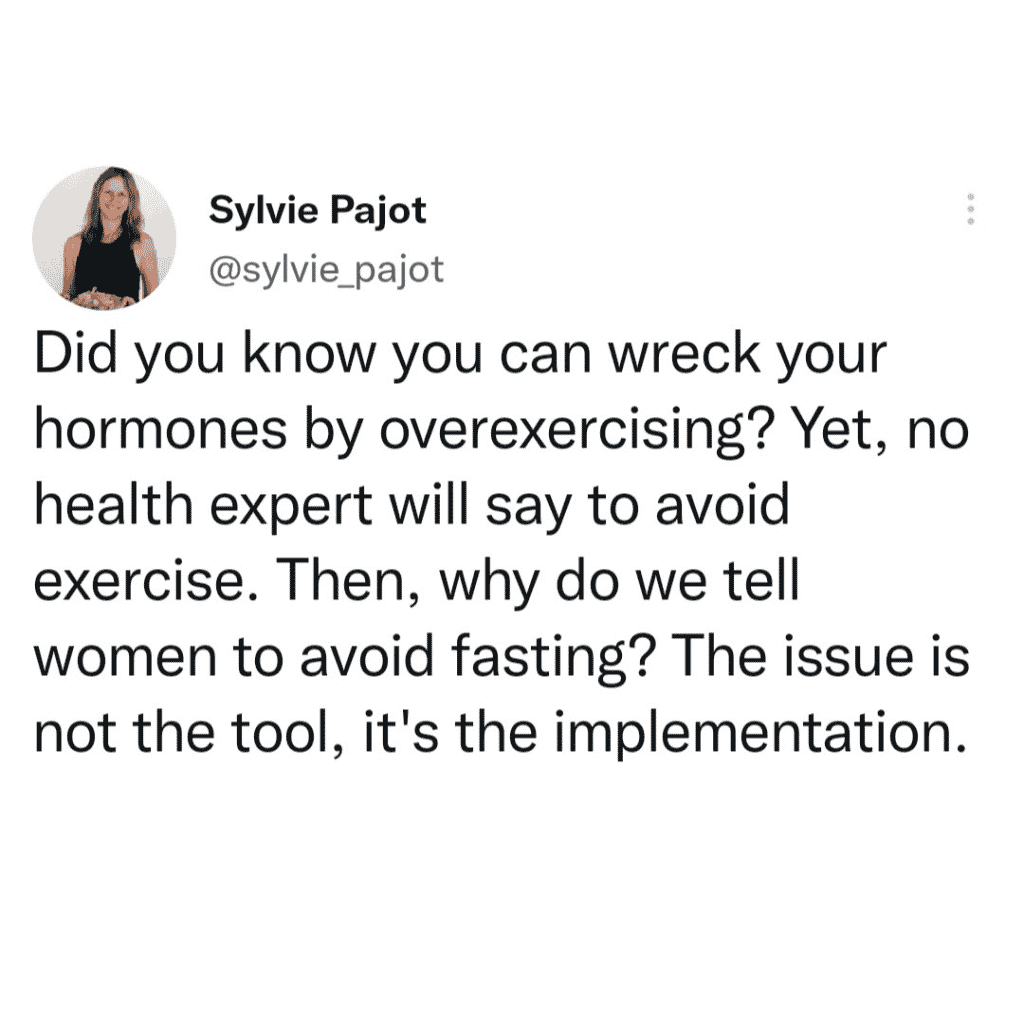
How Women Can Practice Intermittent Fasting Safely
The key for women is to avoid stressing their bodies too much. Moreover, women often notice that fasting and carb restriction are more difficult towards the end of their cycle. This is a sign that should not be ignored. Women must consider their cycle and how they feel when implementing these lifestyle changes.
How to Avoid Stressing Your Body Too Much
Here are some of the most common stresses you can subject your body to:
- Calorie restriction
- Carb restriction
- Fasting
- Exercise
As you can see, these stresses can heal or harm, depending on whether your body manages to overcome and thrive. Or, if you add too many stresses all at once, your body struggles to overcome them and remains in a state of stress. To avoid creating a constant state of stress, avoid fasting every day, don’t restrict carbs (unless you are doing it temporarily), and don’t restrict calories to more than 10 percent of your basic calorie requirement (use a calorie calculator). Read How Many Calories Should I Eat While Intermittent Fasting for Weight Loss if you are curious about calorie intake. Moreover, choose gentler forms of exercise (I like yoga, but find a way to move your body that gives you joy). Read Starting Yoga at 40 or Later: Everything You Need to Know if you are curious about yoga.
How to Fast According to Your Cycle
Pay attention to your body at all times, particularly during the last two weeks of your cycle. If you struggle with your fasting window during this time, relax. Break your fast earlier (particularly when you know how it feels to be metabolically flexible). Read Using Intermittent Fasting for Metabolic Flexibility if you don’t know what I mean.

3. Intermittent Fasting Slows Down Your Metabolism
Intermittent fasting does not slow down your metabolism. It looks like short-term fasts may boost your metabolism. A three-day fast can even boost your metabolism by up to 14 percent. Keep in mind that it’s the stress response in your body, and proceed with care. That’s why I recommend you avoid doing it continuously, no matter your preferred intermittent fasting method. I recommend a longer fast (at least 20 hours) done less frequently (5 days a week at the most).
There are several theories about why fasting provides physiological benefits. The one that we’ve studied a lot, and designed experiments to test, is the hypothesis that during the fasting period, cells are under a mild stress and they respond to the stress adaptively by enhancing their ability to cope with stress and, maybe, to resist disease. There is considerable similarity between how cells respond to the stress of exercise and how cells respond to intermittent fasting.
Mark Mattson, senior investigator for the National Institute on Aging
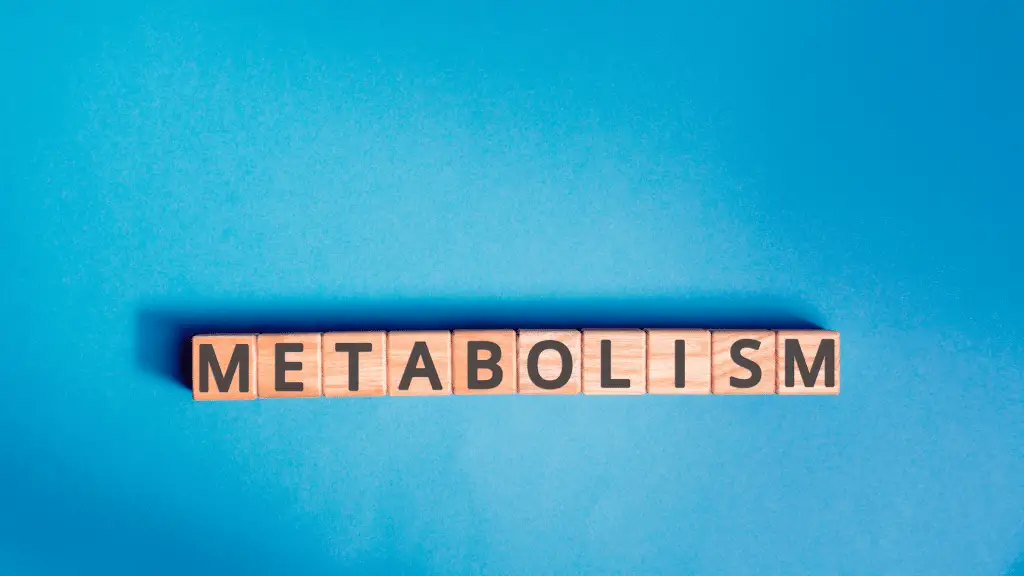
4. Intermittent Fasting Causes Nutritional Deficiencies
It is common to hear that intermittent fasting causes nutritional deficiencies as you reduce the number of meals you consume. People are mainly concerned with this intermittent fasting myth regarding methods like OMAD (One Meal a Day). However, the issue boils down to the number of calories you consume. Whether your calorie restriction stems from intermittent fasting or whether it is continuous, as you eat three meals a day, you will get the same vitamins and minerals in your body. The key is to consume enough nutrient-dense foods during your eating window. Read What to Eat on Intermittent Fasting for Weight Loss to learn more.

5. Intermittent Fasting Is a Diet Culture Fad
In my opinion, this is one of the most infuriating intermittent fasting myths. Humans have gone through cycles of feast and famine throughout human history. Meanwhile, since fasting has become a “fad,” obesity has reached epidemic proportions globally. Fasting is a natural way to improve insulin sensitivity and reset your hunger hormones. Most of us find it challenging to avoid overeating unless we go through famine cycles.
6. Intermittent Fasting Makes You Overeat Later
Hearing that intermittent fasting makes you overeat later is almost funny for anyone who has experienced how it feels to become fat-adapted (or metabolically flexible) with intermittent fasting.
Metabolic Flexibility
Once your body learns to easily switch from glucose to ketones for energy, you notice a massive shift in your appetite. You discover true food freedom as you become free from food! So, no, you don’t overeat later! Instead, you notice that you don’t want to eat as much. Before becoming metabolically flexible with intermittent fasting, many of us will notice that:
- We tend to crave foods overall (particularly sweets after eating a meal).
- Hunger makes us feel miserable rather than just a sensation in our belly.
- We find that eating carbs makes us want to eat more carbs.
Resolving those issues helps us AVOID overeating.
To learn more about my approach to intermittent fasting, don’t forget to sign up for my Intermittent Fasting 101 Workshop.
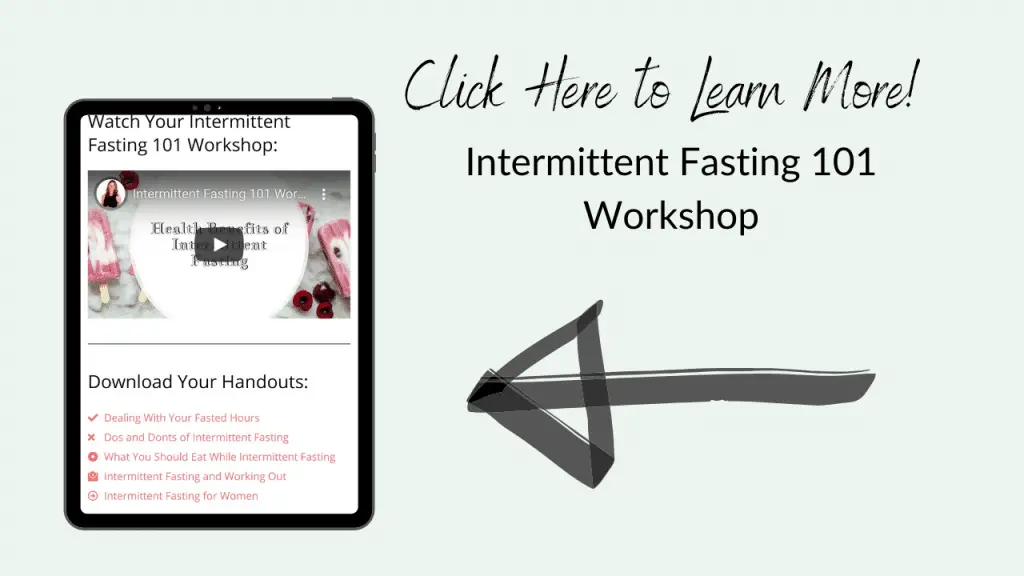
Intermittent Fasting Myths Video
In Summary
The point of this article about busting the most common intermittent fasting myths is not to say that everyone should practice intermittent fasting. Instead, no one should tell everyone to avoid intermittent fasting. Let’s keep an open mind as we approach what works for each of us. We are unique, and we all have different needs. As we take ownership of our health, we may find that something works for a time and doesn’t later, or vice-versa. Don’t get too attached to dogmatic views about common health and wellness tools because that’s all they are: tools! Keep an open mind as you experiment and listen to your body throughout the process. This is the key to success!
